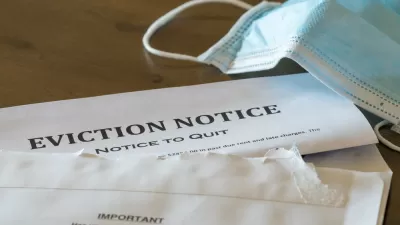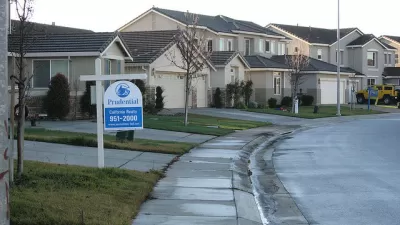Landlords have been unable to raise rents on rent stabilized apartments in Los Angeles since March 2020. Unlike in other large cities with similar rules, Los Angeles won't be removing the rent cap anytime soon.

Landlords in Los Angeles "are prohibited from raising the cost of more than 650,000 rent-stabilized units citywide, which represents nearly three-quarters of L.A.’s apartment stock," according to an article by Liam Dillon for the Los Angeles Times.
The prohibition was one of the measures signed into law by Mayor Eric Garcetti in an emergency order in March 2020, explains Dillon.
So far, the pandemic rent cap hasn't affected the city's housing market, but one local expert, Richard Green, director of the University of Southern California Lusk Center for Real Estate, is cited in the article warning about the potential long-term consequences of the rent cap. "But he said he worries that the longer it continues, the less likely it is for upwardly mobile tenants to leave their existing apartments, keeping what would be lower-cost units unavailable for others."
In the meantime, tenants are benefitting from cap—as rental price have rebounded from pandemic lows in January 2021 and even surpassing pre-pandemic levels in an already expensive city. And landlords are unhappy, saying it's harder to balance the books when factoring in so many increasing costs, "including labor and materials for building repairs as well as city fees for trash pickup."
Dillon also provides a comparison about Los Angeles' rent stabilization emergency order compared to other large cities around the country—New York, San Francisco, and Washington, D.C. Of those cities, Los Angeles is the only to leave its emergency rent stabilization rules in place beyond the first few months of 2022.
FULL STORY: Even in a hot market, L.A. won’t allow rent hikes for most tenants until 2023

Alabama: Trump Terminates Settlements for Black Communities Harmed By Raw Sewage
Trump deemed the landmark civil rights agreement “illegal DEI and environmental justice policy.”

Study: Maui’s Plan to Convert Vacation Rentals to Long-Term Housing Could Cause Nearly $1 Billion Economic Loss
The plan would reduce visitor accommodation by 25% resulting in 1,900 jobs lost.

Planetizen Federal Action Tracker
A weekly monitor of how Trump’s orders and actions are impacting planners and planning in America.

Wind Energy on the Rise Despite Federal Policy Reversal
The Trump administration is revoking federal support for renewable energy, but demand for new projects continues unabated.

Passengers Flock to Caltrain After Electrification
The new electric trains are running faster and more reliably, leading to strong ridership growth on the Bay Area rail system.

Texas Churches Rally Behind ‘Yes in God’s Back Yard’ Legislation
Religious leaders want the state to reduce zoning regulations to streamline leasing church-owned land to housing developers.
Urban Design for Planners 1: Software Tools
This six-course series explores essential urban design concepts using open source software and equips planners with the tools they need to participate fully in the urban design process.
Planning for Universal Design
Learn the tools for implementing Universal Design in planning regulations.
Caltrans
Smith Gee Studio
Institute for Housing and Urban Development Studies (IHS)
City of Grandview
Harvard GSD Executive Education
Toledo-Lucas County Plan Commissions
Salt Lake City
NYU Wagner Graduate School of Public Service





























